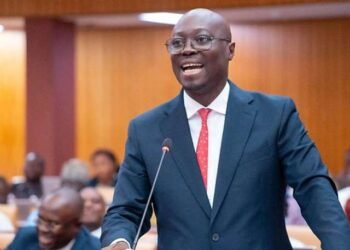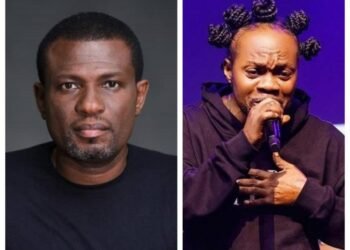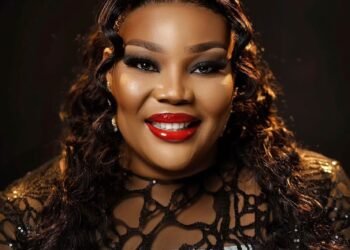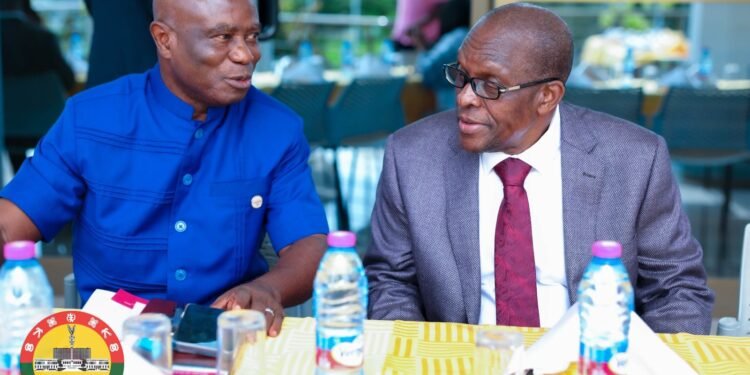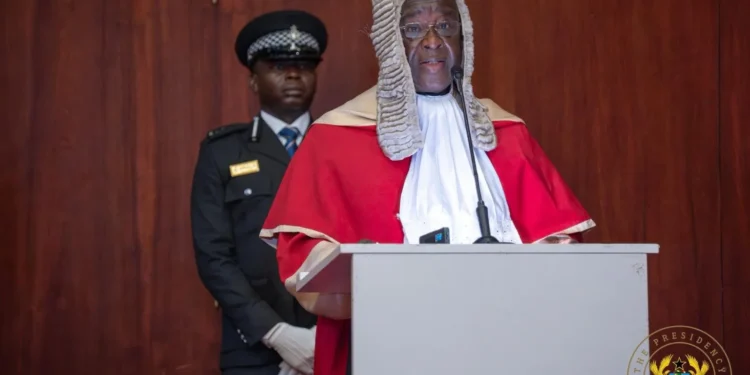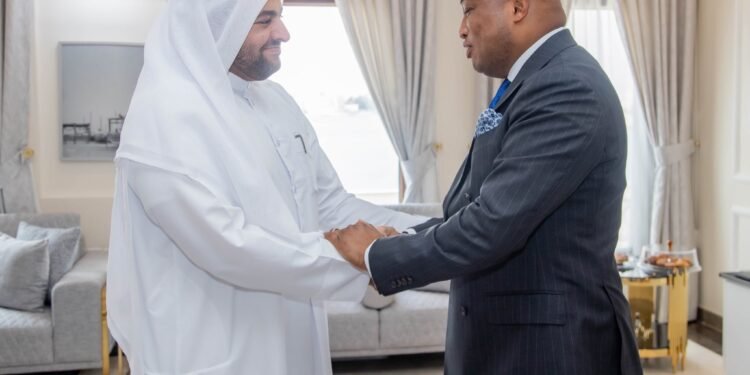Ghanaian musicians have been urged to forget about trying to gain global attention by adopting foreign music styles and instead focus on promoting their own unique sound and culture.
In recent years, there has been a growing trend among Ghanaian musicians to mimic popular music styles from other countries in an attempt to appeal to a wider international audience.
This has led to a homogenization of music in Ghana, with many artists losing touch with their roots and heritage.
However, music experts and industry insiders are now calling for a return to authenticity and originality in Ghanaian music.
They argue that the country’s rich musical heritage, which includes genres such as highlife, hiplife, and gospel, should be celebrated and promoted on the global stage.
“Many Ghanaian musicians are trying to sound like American or Nigerian artists, but they are losing sight of what makes their music unique,” said Kwame Mensah, a music producer in Accra.
He added, “We have a rich musical tradition that should be celebrated and shared with the world.”
One of the key concerns with adopting foreign music styles is that it can lead to the erasure of local culture and identity.
By imitating Western or Nigerian music, Ghanaian artists risk diluting their own sound and losing the distinctiveness that sets them apart.
“We need to embrace our own music and culture and stop trying to be something we’re not,” said Afua Boateng, a music journalist in Ghana.
She stressed, “Our music has a unique rhythm and style that should be celebrated and shared with the world.”
Sharing his thoughts on the situation, Michael Mensah Ashley, popularly known as DJ Ashmen said, “We have a unique music identity, Highlife and Hiplife and we must be intentional about getting it out there.”
DJ Ashmen stated that the absence of a unique music sound has been a major drawback to the Ghanaian music industry’s global appeal.
“Some of us saw the danger ahead and the devastating consequence for the music industry long ago when we realised that our artistes love and cherish foreign things than ours,” he said.
“I always receive bashing from beatmakers when I talk about this because they feel they know better,” he revealed.
“But I’m throwing a challenge for us to conduct research about Ghana music from the days of palm wine, highlife music, burger highlife originated by George Darko and even Hiplife, we have our identity in all these music styles.
“So the question now is, ‘why are we trying so hard to sound American, Jamaican and even Nigerian? Is it that we don’t value what we have?’”
DJ Ashmen
Lamenting the increasing trend of Ghanaian artistes abandoning traditional sounds in the name of gaining global attention, the Disc Jockey voiced, “We are here thinking our own Highlife is ‘colo’ because it’s local and old but we are happy to say we are doing Afrobeats.”
“What is Afrobeats?” he asked, adding that Ghana has even lost the right to claim Afrobeats because “we weren’t proud of our Highlife which is undoubtedly the roots of Afrobeats.”
“And we continue to shout about global appeal and attention when the solution is staring us right in our faces. Like I’ve always said, the music industry lacks identity and it’s very bad for the future of the industry and the so-called international appeal we are all fighting for.”
DJ Ashmen
Signs Of Change Seen
Nevertheless, there are signs that the tide may be turning, with a growing number of Ghanaian artists returning to their roots and incorporating traditional sounds and instruments into their music.
Artists such as Sarkodie, Stonebwoy, and Efya have all been praised for their efforts to promote Ghanaian music on the global stage.
“We need to be proud of our own music and not try to imitate others,” said Stonebwoy, a popular Ghanaian musician.
He added, “Our music is special and we should embrace it and share it with the world.”
By celebrating their rich musical heritage and embracing their own identity, Ghanaian artists have the potential to make a lasting impact on the global music scene.
READ ALSO: Minority Invites Dr Bawumia to Debate on Mid-Year Budget Review





